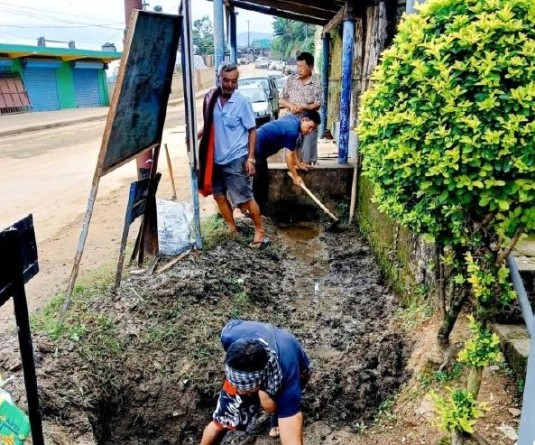
Rongsenkumla Lkr
Department of Journalism and Mass Communication, NU Lumami
For centuries, indigenous communities have lived in harmony with nature, guided by deep-rooted traditions and ecological wisdom. The Maori of New Zealand believe in kaitiakitanga—the sacred duty of protecting the environment as a tribute to their ancestors and a promise to future generations. Similarly, the Naga people of India have long viewed nature as a living, breathing entity, central to their cultural identity. But modern science and technology have disrupted this balance, pushing indigenous knowledge systems to the margins. Once dismissed as superstition or outdated tradition, these age-old practices are now making a comeback, as the world grapples with climate change and environmental crises. Is it time to rethink the dominance of Western scientific thought and embrace a more inclusive approach to knowledge?
Science has all too often been seen as a mode of knowledge that became the dominant way to see the world at a particular time in western history. For example, the Copernican revolution changed the way the solar system was understood and, in a way, the very idea of the universe. Francis Bacon theorised the new ‘scientific method’ as knowledge that was overwhelmingly certain derived from observation, experimentation and verification. This certainty and confidence in human ability to discover the ‘laws of nature’ also became the means for human ability to conquer nature. Ships, gun powders, maps. Became the means to explore new areas of the world. Two consequences of this ‘scientific revolution’ was all modes of knowledge that could not be deemed ‘scientific’ was degraded to myth and superstition. The other was that science came to mark the pinnacle of human civilisation and all other societies that did not valorise science in the same way became inferior and primitive. August Comte called the scientific or the positive age to be the highest form of human society.
This new attitude towards nature as one marked out for human control was extended to so called primitive societies which were seen to be fit to be subjugated and brought under the control of western nations, Science became the hallmark of western superiority. Traditional knowledge became unacceptable to the scientific world and traditional societies were seen as devoid of scientific outlook. It was assumed that with the advancement of modernity, traditional ways of life would completely disappear and give rise to a completely secular understanding of the world. Colonialism wherever it went sought to use science to advance both western domination and to delegitimize indigenous knowledge and practices. Colonialism created a discourse about knowledge and science that linked it with uniquely western modes of thought and reason. Oriental societies like India could jump on the bandwagon of modernisation only by learning ‘western science’. The result of the way science entered the colonised was to create ambivalences and tensions at many different levels. If science was to accepted as the only valid mode of thought then how could people imagine their traditional worlds? One response to this dilemma was to uphold the validity of ‘sacred knowledge’ as being autonomous and beyond the limits of science. The other was to see elements of modern science as being present or known in the ancient period and sometime even to claim that in many ways modern science is merely rediscovering the knowledge already known to the ancients.
Communities like the Naga people have had to undergo similar tensions and disruptions with the penetration of modern knowledge and ways of life. Similar ambivalence can be seen in the attitudes prevalent towards traditional forms of knowledge. On one hand these forms of knowledge seem to become sources of identity and cultural location on the other hand it is not entirely clear if indigenous knowledge could be given an equivalence to modern forms of knowledge. Post colonial critique however has opened up new ways to overcome the marginalisation of indigenous modes of thought. Epistemologies and imaginations that were excluded from the ambit of discourse of ‘science’ are now being recognised as ‘authentic’ and as unique adaptation to the particular ecological niche inhabited by indigenous societies. For example, jhum cultivation had often been seen as the hallmark of a very primitive and unscientific mode of production that was damaging to the environment and economically very unproductive. Deeper awareness of the ecological and cultural underpinnings of jhum cultivation has led to the realisation that it has not only allowed tribals to preserve the ways of life of their forefathers but also protected the ecosystem in ways in which more modern scientific agriculture would not have.
The global climate crisis, a consequence of industrial science and technology’s impact on the environment, has renewed interest in indigenous knowledge systems. As the world grapples with ecological destruction, many are looking back at traditional wisdom to find sustainable solutions. Among the Nagas, there is a growing movement to reclaim the past and redefine identity through indigenous modes of life and thought. This shift has further complicated the authority of science in society. No longer seen as an unquestioned source of truth, science is now being subjected to critique, and there is an increasing call for a more holistic understanding that integrates multiple ways of knowing.
The intersection of modern science and indigenous knowledge is not simply a matter of conflict but one of negotiation and adaptation. While science has provided revolutionary advancements, it has also contributed to the degradation of traditional wisdom and ecological imbalance. Indigenous knowledge systems, once dismissed as archaic, are now being re-evaluated for their deep ecological insights and cultural significance. The challenge today is not to reject science but to create a space where multiple knowledge traditions can coexist and inform each other. A more balanced approach—one that respects both modern scientific advancements and the wisdom of indigenous communities—may be the key to addressing the pressing environmental and cultural crises of our time.




